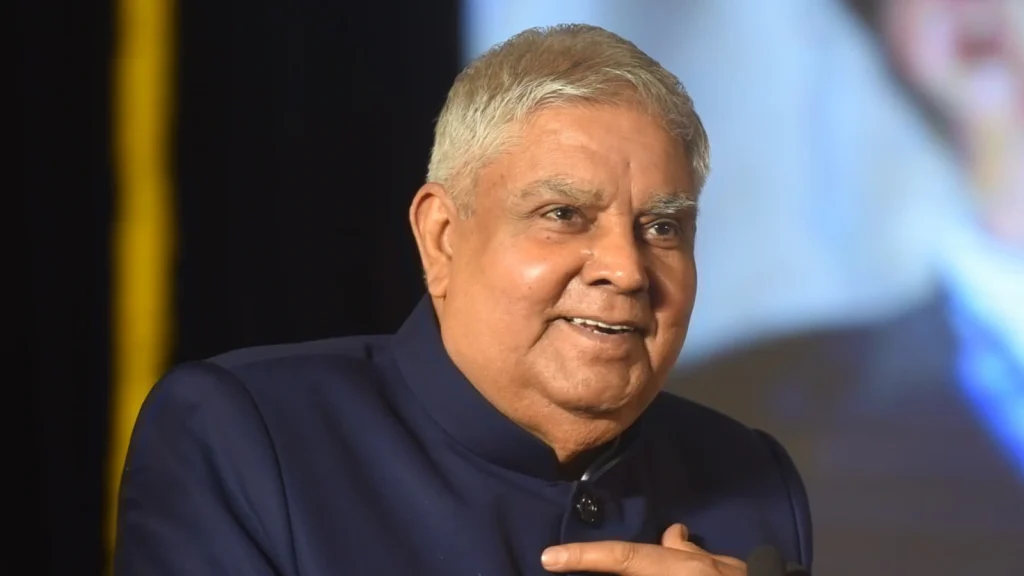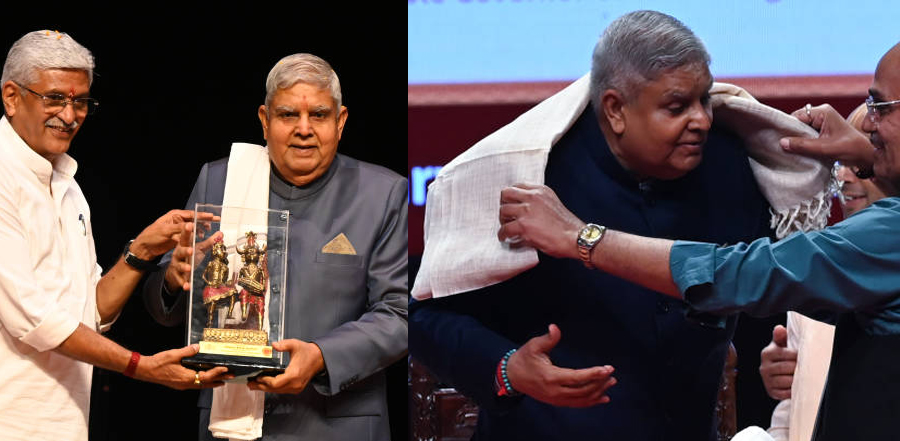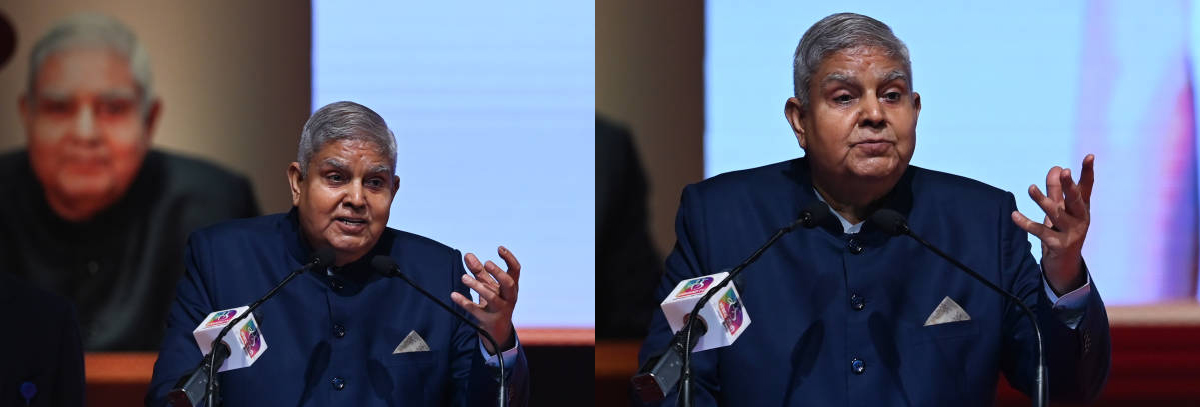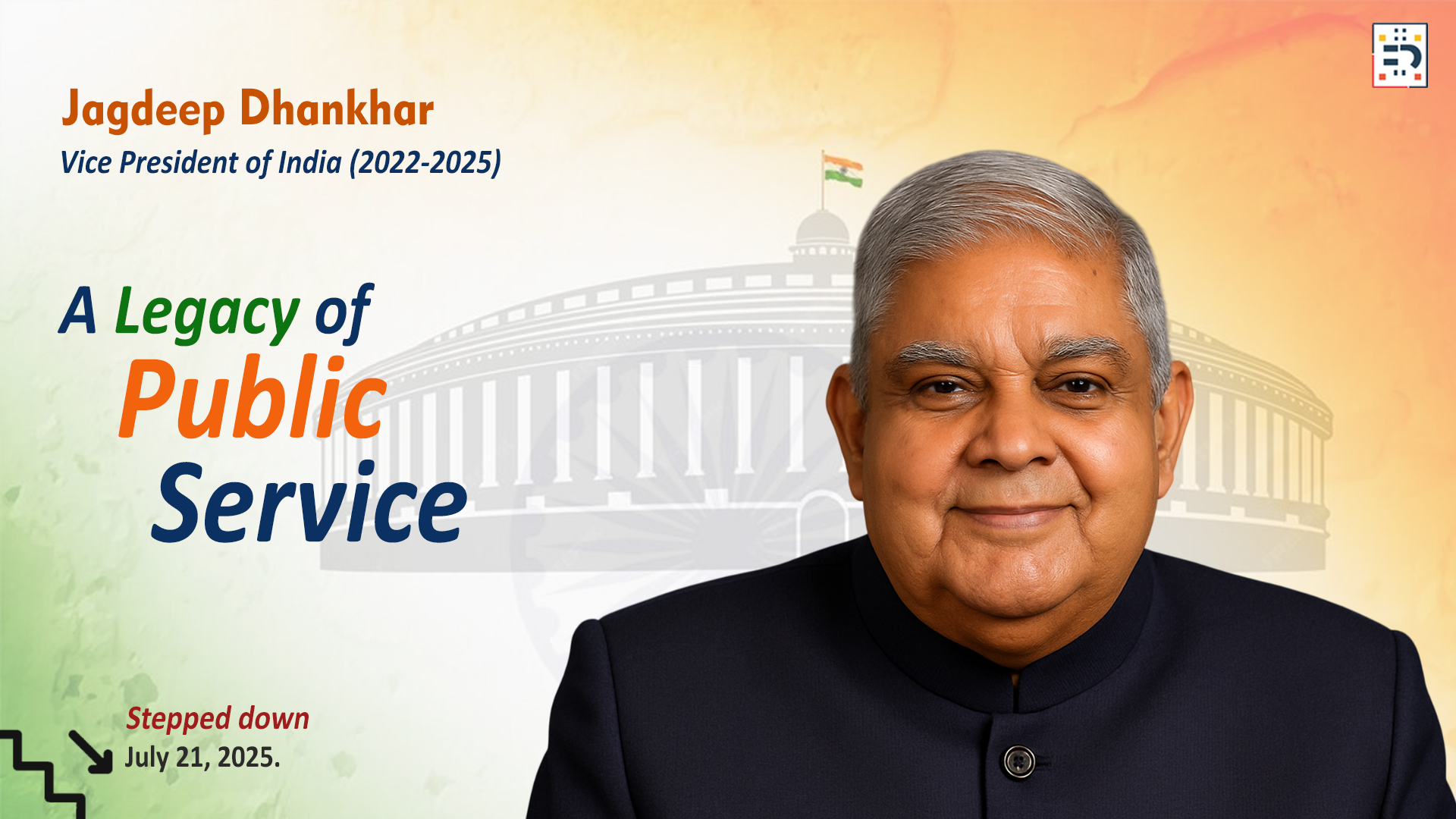Jagdeep Dhankhar, born on May 18, 1951, in the small village of Kithana, Jhunjhunu District, Rajasthan, has had a remarkable career spanning law, politics, and constitutional office. His journey from humble beginnings as a “Kisan Putra” (farmer’s son) to the Vice President of India (2022-2025) is a testament to his perseverance and dedication. His recent resignation on July 21, 2025, citing health concerns, marked an unexpected turn in his impactful public life. For a deeper dive into his official biography, visit the Vice President of India’s official profile.
Childhood and Family Background
Dhankhar’s early education took place in his native village of Kithana, at the Government Primary School (Class 1-5). For Class 6, he attended the Government Middle School in Ghardhana, walking 4-5 kilometers daily with other village students. In 1962, he secured admission to Sainik School, Chittorgarh, on a full merit scholarship, an English-medium residential school known for its rigorous curriculum. This formative experience is credited with shaping his leadership skills. You can learn more about his early life and education in this Times of India article on his educational journey.
His parents were Late Shri Gokal Chand and Late Srimati Kesari Devi. In 1979, he married Dr. Sudesh Dhankhar, who holds a postgraduate degree in Economics from Banasthali Vidyapeeth. Dr. Sudesh Dhankhar has a keen interest in social work, organic farming, child education, and upliftment. For more on his family details, you can refer to his official profile. They have one daughter, Smt. Kamna, who is married to Kartikeya Vajpayee.
Education and Legal Career
After his schooling, Dhankhar pursued higher education at the University of Rajasthan, Jaipur, where he graduated with a B.Sc. (Honors) in Physics. He then went on to earn an LL.B. from the same university between 1978 and 1979, laying the foundation for his legal career. This legal foundation proved crucial for his subsequent political roles.
He enrolled with the Bar Council of Rajasthan as an advocate on November 10, 1979. In 1987, he was elected President of the Rajasthan High Court Bar Association, becoming the youngest person to hold the position. He was designated as a Senior Advocate by the High Court of Judicature for Rajasthan on March 27, 1990. Since 1990, he primarily practiced in the Supreme Court of India, focusing on litigation in areas such as steel, coal, mining, and international commercial arbitration. He appeared in various High Courts across the country and was the senior-most designated Senior Advocate of the State until he assumed the office of Governor in 2019. He was also an elected member of the Rajasthan Bar Council in 1988. For more on his legal career highlights, see this Zee Business article.

Political Journey
Jagdeep Dhankhar’s political career has seen him associated with different parties, showcasing a dynamic trajectory. He entered active politics in 1989, when he was elected as a Member of Parliament (Lok Sabha) from the Jhunjhunu constituency in Rajasthan on a Janata Dal ticket. He served as a Union Minister of State for Parliamentary Affairs in the Chandra Shekhar ministry from 1990 to 1991.
In 1991, he joined the Indian National Congress. He was elected as a Member of the Legislative Assembly (MLA) from the Kishangarh constituency in Rajasthan, serving from 1993 to 1998.
In 2003, Dhankhar joined the Bharatiya Janata Party (BJP), where he took on leadership roles in its legal affairs wing. His political prominence resurfaced significantly in July 2019 when he was appointed Governor of West Bengal. His tenure as Governor, from July 30, 2019, to July 18, 2022, was marked by frequent public confrontations with the ruling Trinamool Congress (TMC) government, garnering considerable media attention.
In July 2022, he was nominated as the NDA’s candidate for Vice President of India. He overwhelmingly won the election on August 6, 2022, securing 528 out of 710 valid votes, and assumed office as the 14th Vice President of India on August 11, 2022. For a comprehensive overview of his political career highlights, Wikipedia provides a detailed account.

As Vice President of India and Engagement with International Topics
As Vice President, he also served as the ex-officio Chairman of the Rajya Sabha. His tenure as Chairman was marked by efforts to bring reforms, including increasing women’s representation in the panel of Vice-Chairpersons in the Rajya Sabha. He also presided over significant parliamentary transitions, such as the historic shift from the old Parliament House in 2023. Dhankhar was a vocal advocate for legislative-executive balance and parliamentary reform, often expressing his views on constitutional matters and judicial decisions. You can read more about his role in Indian Parliament in this Hindustan Times article on his push for reduced political tension.
While specific records of a “Jagdeep Dhankhar USA speech” with detailed “Jagdeep Dhankhar comments on US government” or a “Jagdeep Dhankhar USA controversy” directly related to official trips to the US are not widely publicized, his pronouncements on certain policy matters have resonated internationally. For instance, in discussions surrounding the Citizenship Amendment Act (CAA), Dhankhar has expressed strong disapproval of “ignorant observations” made from “sovereign platforms” about India’s internal affairs. This suggests a firm stance against external criticism, which could potentially be interpreted as a commentary directed at international bodies or governments, including the US, that have expressed concerns over the CAA. His remarks in India, for example, at the American Bar Association Spring Conference in March 2025, highlighted India’s history of offering refuge to persecuted communities and asserted that India is “not a nation to get scriptures from others” on its democratic traditions. Such statements, while delivered domestically, carry implications for international relations and could be perceived as “Jagdeep Dhankhar CAA remark USA”-related discussions by those following the topic from abroad. His perspectives on India’s human rights record and the rule of law in India are also available from official sources and news reports.

Regarding immigration remarks, particularly in the context of “Jagdeep Dhankhar immigration remarks USA”, while direct statements specifically targeting US immigration policy are not prominent, his broader views on illegal migration within India have drawn parallels with discussions in other countries, including the US. For instance, he has spoken about “illegal migration” causing “demographic upheaval” and placing stress on public services within India. These are themes that resonate with immigration debates in the US, where similar concerns about undocumented populations and their impact on resources are often raised. While not a direct “Jagdeep Dhankhar USA speech” on the matter, his perspective contributes to the wider global conversation on immigration that stakeholders in the US might follow.
Dhankhar’s public statements often underscored India’s sovereignty and its right to chart its own course, particularly when it came to internal policies. These strong assertions, while aimed at a domestic audience, have had resonance in international diplomatic circles, including the US, as India navigates its role on the global stage. His views on international relations emphasize realism and national interest. He has also engaged with global academic communities, addressing students from institutions like Harvard Business School, where he articulated India’s rise and its commitment to global good. Find excerpts of his address to Harvard Business School students on the Vice President’s official website.
His unexpected resignation on July 21, 2025, two years ahead of schedule, citing health reasons, has generated considerable discussion and speculation. While his official reason for stepping down has been to prioritize health and medical advice, the timing, coinciding with the first day of the Monsoon session of Parliament, has led to various political interpretations and analyses in India and amongst international observers. More details on his health reasons for resignation can be found in this Indian Express report. The political impact of his resignation is being widely debated in India and beyond, marking a significant moment in recent Indian political history.


